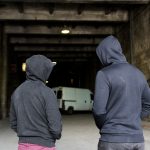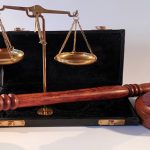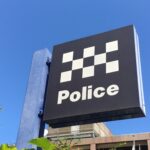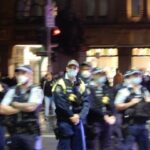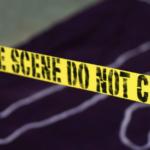Authoritarianism Accelerates: Associate of Assange Investigated Under UK Terrorism Laws
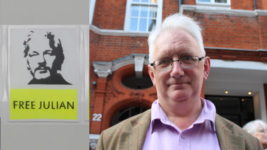
Australian journalist and publisher Julian Assange continues to sit in London’s Belmarsh Prison, as he’s been remanded for more than four years on behalf of Washington, which reached out across international borders to arrest and then prosecute the foreign national under its own domestic laws.
Despite one final appeal avenue left to Assange in regard to challenging the UK greenlighting of his extradition, which involves a public hearing before two judges, the case also raises a number of issues regarding the lack of due process that Assange has been shown by our nation’s closest allies.
Indeed, the long-held assertion is that Assange has been the subject of a soft torture project, that’s included prolonged isolation, illegal under international law, and it further posits that this commenced from the time the publisher first entered the Ecuadorian Embassy in 2012.
Former UK diplomat and ardent Assange supporter, Craig Murray told New York radio a few months back that he considers the suggestion of current US ambassador Carolyn Kennedy regarding a possible plea deal with Assange are statements simply designed to placate rising public support.
And Murray has since appeared on an episode of Moats Podcast, which saw host George Halloway assessing the ongoing genocide in Gaza, and when their conversation turned to Assange the ex-diplomat ruled out any real negotiations ever having transpired between Canberra and Washington.
Then the outspoken advocate for Assange and Palestine revealed that the UK government had stopped him at Glasgow Airport and confiscated his phone, only to then go on to inform him that they’re conducting a terror investigation relating to his campaigning on these issues.
Remember those terrorism laws
“Arriving back from Iceland to England from an international meeting of the coordination group of the campaign against the extradition of Assange, I was stopped at Glasgow Airport”, Murray explained, and he noted this was under schedule 7 of the Terrorism Act 2000 (UK).
“I was told I was being investigated for terrorism. I was therefore, not entitled to legal advice. I was told I had no right to remain silent. I was asked questions both about the Assange case and about my support for Palestine,” by the close associate of the WikiLeaks founder.
This incident happened on 16 October. And the ex-diplomat was subsequently informed that he’s the subject of a terror inquiry, which he terms “ludicrous”. He also had to hand over his phone, along with its password. And officers questioned him thoroughly over who was funding his work.
“This is an enormous abuse of human rights,” Murray wrote on 24 October, adding that being refused a lawyer and the right to remain silent are abuses of process. And he added that the false claim that he is a terror associate facilitated his arrest, “political questioning” and the seizure.
“Having already spent four months of my life in prison on a ludicrous pretext, I wasn’t going to stay around for them to do it to me again, so I decided to come to Switzerland, visit the United Nations and also, put in a formal complaint about my treatment,” Murray further said.
For all and sundry
Advocates for Assange have been warning that the case the White House is running against him is unprecedented in terms of reach and the chilling effect it will have upon global press freedoms, as all of us will then be subjected to such precedent if found to have stepped over the line.
This discouragement of journalists on reporting on government corruption, the chilling effect, has usually been framed as taking effect post-Assange-conviction-in-the-US: after his being extradited and standing trial on an indictment involving 18 espionage charges carrying up to 175 years inside.
But with the Murray terror investigation now commenced, it seems the broader crackdown on press freedoms is already underway, and the US and the UK governments are attempting to silence those in the community advocating against government decay.
“I’m waiting at the moment while my legal team in Scotland clarifies what this ludicrous notion of a terrorist investigation is,” said Craig on ending the interview. And he listed an extra six journalists, who are also under investigation due to the subject matter they’ve been tackling.
“It may be that this is just another piece of police harassment that is going to blow over,” the former UK diplomat said in concluding. “And until that becomes clear, I’m going to stay out of the country.”


